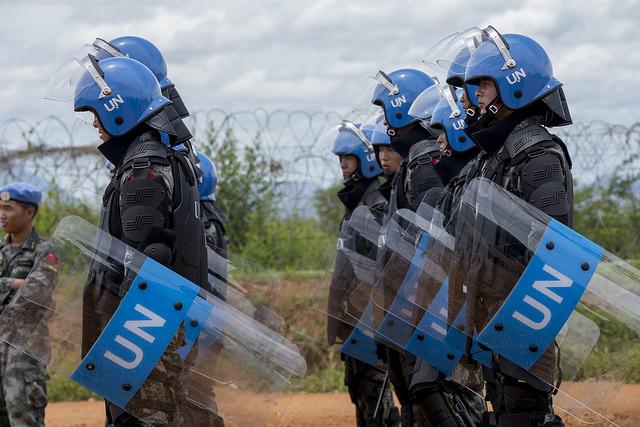
With the world’s attention understandably focused on the horrors unfolding in Syria, it’s easy for other crises to slip under the international radar. But when the chair of a UN Commission on Human Rights speaks of ‘the stage being set for a repeat of what happened in Rwanda, and the international community is under an obligation to prevent it,’ it’s time to take notice, and to act.
The crisis in question continues to unfold in South Sudan. The world’s youngest country, South Sudan came in to being as an independent nation on a sweltering day in July 2011, when the airport of the new nation’s capital, Juba, was log-jammed with the planes of neighbouring presidents, there to wish the new country well. Sadly, the day’s optimism soon dissipated, as the unity of purpose which marked South Sudan’s move to independence (98.83% of the electorate voted in favour in a referendum earlier that year) was replaced by tensions and conflicts between the country’s ethnic groups, which had been, at best, suspended as independence approached. Within weeks clashes occurred, and by 2013 a full-on civil war had started between supporters of President Salva Kir and his (by then former) Vice President Riek Machar. Although peace deals have been brokered since, the conflict continues.
This civil war has had a devastating effect on a region with already stretched resources. Over a million refugees have left South Sudan since 2013, and with nearly two million internally displaced, the total number of people who have fled their homes now tops three million—over a quarter of the country’s population. Just last month, the UN’s Emergency Relief Co-ordinator, Stephen O’Brien, told the UN Security Council that ‘South Sudan is on the brink’, and Adama Dieng, the UN Special Adviser on the Prevention of Genocide, said in November that ‘there is a strong risk of violence escalating along ethnic lines, with the potential for genocide.’
How can such an outcome be prevented? The prerequisite is, of course, a political settlement in the country. The peace agreement signed by the South Sudanese leaders in 2015 provided a route map for that to be achieved. Now, it urgently needs to be implemented. The Comprehensive Peace Agreement, which culminated in South Sudan’s independence saw the creation of a new nation, but lacked the nation-building necessary to bring peace and sustainable development to the country. With the Intergovernmental Authority on Development—the regional organisation of which South Sudan is a member—focusing on the country, there’s some international pressure for such a settlement, but progress is painfully slow.
The international community continues to do its bit by funding humanitarian efforts and sending the UN Peacekeeping Mission UNMISS under a mandate to protect civilians, monitor and investigate human rights abuses, support the delivery of humanitarian assistance and to prevent gender-based violence and monitor hate speech. (For its part, the Australian government has contributed $50 million to the humanitarian fund, and 25 ADF personnel are working at UNMISS headquarters.) The UNSC also authorised (grudgingly accepted by the South Sudanese government) a 4,000-strong Regional Protection Force to secure Juba—a welcome development, if 4,000 soldiers can be found. But the Council remains divided over the question of implementing an arms embargo on South Sudan. It’s unclear whether such an embargo would have any practical effect on a country already swimming in weaponry, but approving it would at least be symbolically significant.
Will that be enough to stave off the worst possible outcome, and allow the people of South Sudan to look with optimism towards the better, more peaceful future? One thing that’s clear is that the country has human capital which can help it to develop. Tomorrow, the 2017 Australian of the Year will be announced. Deng Adut is the New South Wales nominee. Born in Jonglei State—one of the centres of the current conflict—he was recruited as a child soldier at age 6, before escaping via Ethiopia to Australia, where he’s now a lawyer defending the rights of people in his community. There are more like him in his original homeland. But will they be in a position to prosper in their own country? That may seem unlikely, and South Sudan is now the source of Africa’s largest displacement crisis. (The UNHCR recently launched an appeal to raise US$701 million to support displaced people in South Sudan and six neighbouring countries).
However, there are some green shoots of optimism, notably the recently announced ‘National Dialogue,’ which will soon start its work of re-establishing a South Sudanese sense of national unity. So 2017 is set to be an important year for South Sudan. It’ll either be one during which the country will inch closer to the ‘failed state’ basket, or one in which it will set out on the long road to national recovery and reconciliation.